
What’s the only thing better than a solitary bee? It’s Two Bees! In this exclusive interview, we talk to the man behind the Two Bees honey company about how he sources the very best pure honey from around the world and brings it to the table.
In today’s world, everyone seems to know of a superfood that can help with just about everything, but one natural food that stands out probably above all others is honey. Honey’s remarkable properties is not a modern-day discovery; in fact, humans have been fascinated with it for many thousands of years.
In Valencia in Spain, an 8000+-year-old Mesolithic rock painting shows two foragers collecting honey. It has been documented in hieroglyphs in ancient Egypt and was considered so valuable it was buried with the dead. Even the Holy Bible refers to it in a glowing light with the Book of Proverbs stating, “Eat honey, my son, for it is good”.
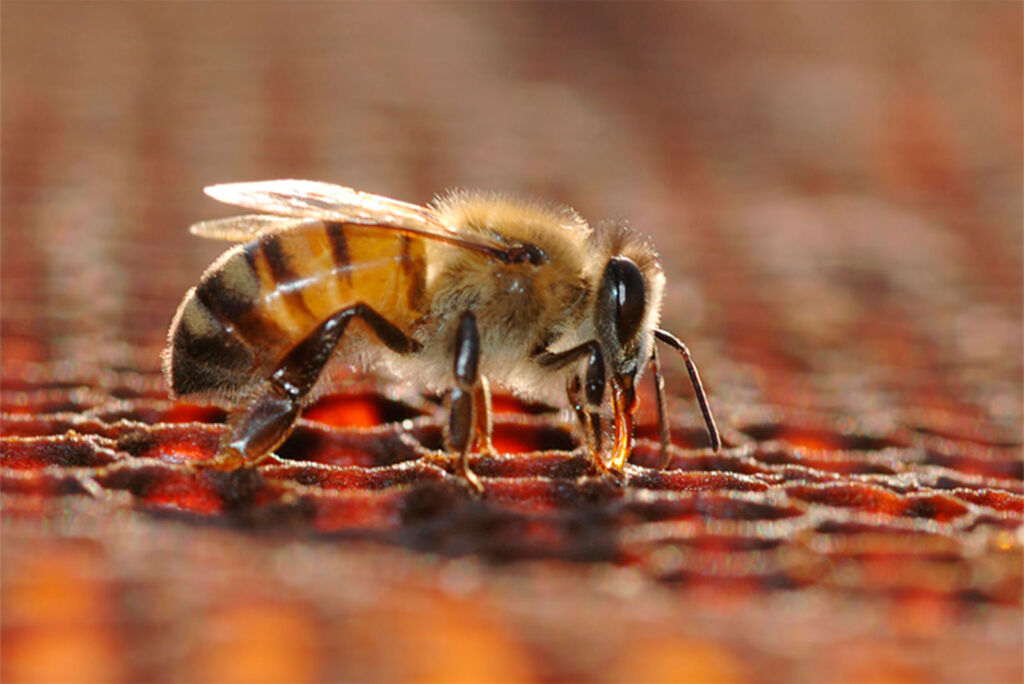
However, although it is clear that honey is a terrific natural product that’s benefitted humans for millennia, it’s also clear that not all kinds of honey are equal.
Walk into any supermarket, and you’ll see jars and containers filled with honey of different colours and consistencies. Most consumers will pick one of these up, see the word honey written on the front and think that’s what they are getting. Alas, I wish life was that simple.
What’s labelled as honey often isn’t
The honey industry has regularly been in the news for the wrong reasons over recent years. If we take the United States as an example, food-safety experts found that some of the honey sold in the country was nothing more than a concoction of rice or corn syrup, cheap unrefined sugars or malt sweeteners, and that’s not the worst of it. Some honey products that hailed from Asia contained toxins such as lead, other heavy metals and adulterated antibiotics.
Even the UK market, renowned for its incredibly high food standards, is not immune to honey manipulation. In a 2020 study, thirteen different “off the shelf” brands were tested by the German laboratory FoodQS, and they found that nine of the thirteen products tested, including some supermarket “own brands”, contained a sugar that does not occur naturally in honey, and even more showed the presence of enzymes, indicating they may contain inverted syrup.
The one obvious thing from this is that buying pure and safe honey is somewhat of a minefield. The only way to know for sure that you’re getting authentic honey is to buy it from a company such as Two Bees, whose reputation is founded on supplying only the very best and purest products.
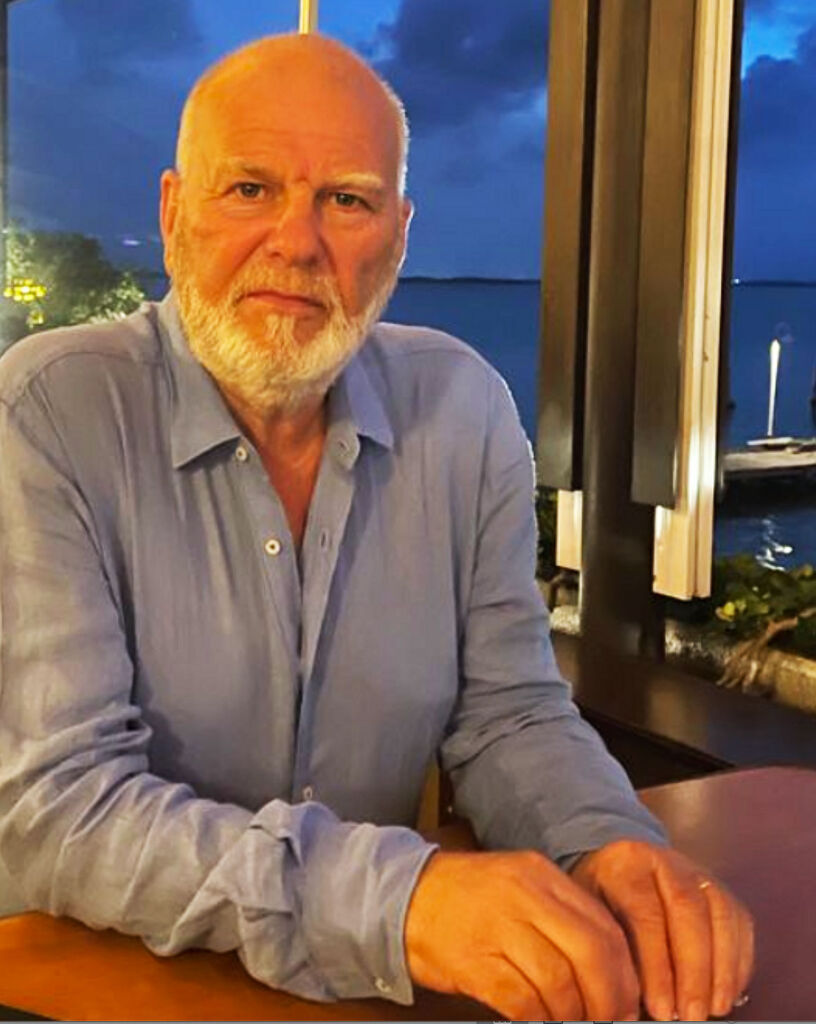 Two Bees is the brainchild of Mark Woodward (left), and he travels the world uncovering pure, ethical and sustainable honey. As fans of honey, we were interested in finding out more and decided to ask them a few questions.
Two Bees is the brainchild of Mark Woodward (left), and he travels the world uncovering pure, ethical and sustainable honey. As fans of honey, we were interested in finding out more and decided to ask them a few questions.
Luxurious Magazine: First thing’s first, how do you determine what is good honey?
Two Bees: It can be quite a challenge to find good, pure honey as, like many other food commodities, adulteration is common. For ‘good honey’, look for the word ‘pure’ on the packaging and then make sure that it simply says ‘100% honey’ under the ingredients. You can also apply the ‘Thumb Test’.
Place a small amount of honey on your thumb and check if it spills or spreads around. Pure honey sticks to the surface it is applied to and doesn’t drip away. Another tell is the smell; pure honey has a distinctly sweet aroma. And, of course, taste. The flavour of impure honey may linger due to the presence of added sugar.
LM: When sourcing honey, do the producers come to you or do you contact them, and are there any visits involved?
Two Bees: We visit every beekeeper to ensure ethical, planet-friendly bee welfare is top of their priority list. We work with them to understand the ‘nose’ of the local flora and the flavour of the resulting honey. It’s also vital that we check for moisture before harvesting. The water content will determine the honey’s ability to remain fresh and avoid spoiling caused by fermentation. It’s a quick and efficient test using a honey refractometer. Yes, it’s really called that!
LM: Is there any testing to ensure it is pure honey with no additives?
Two Bees: To ensure that the honey is pure, we use Fourier transform infrared spectrometry. It’s a bit of a mouthful, I know. The system is the globally accepted scientific method for testing the various elements of natural sugar. If the honey passes the test, we buy it.
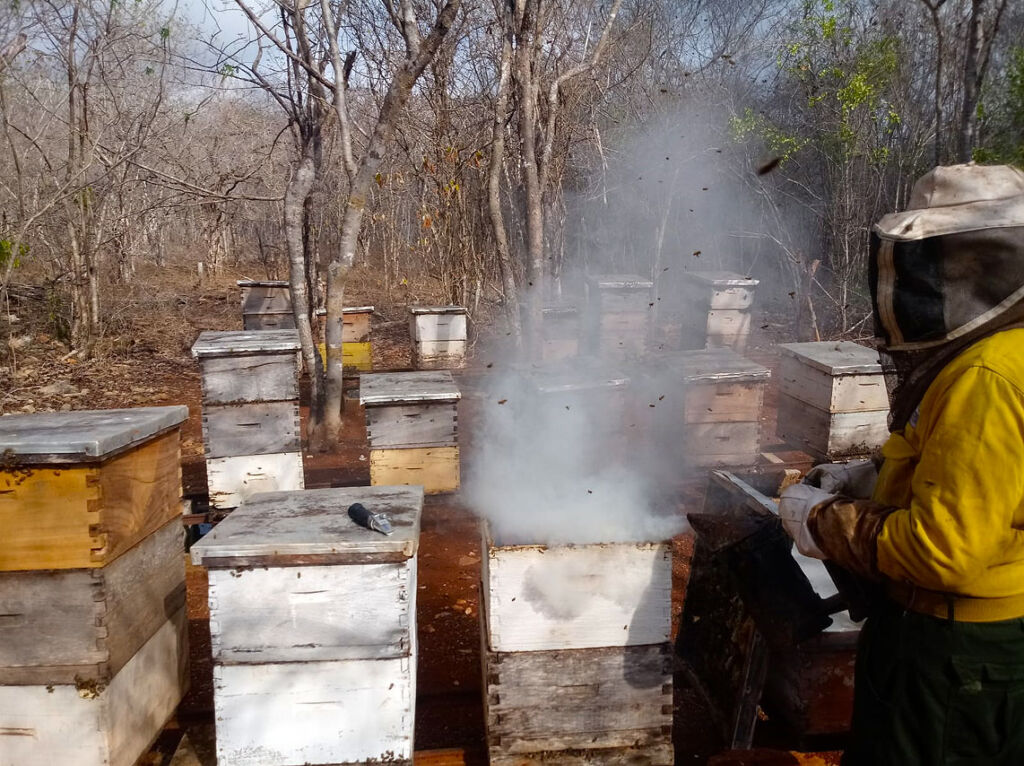
LM: Do sustainability and the environment factor in your decision whether you sell honey or not?
Two Bees: Honey bees are a crucial part of the environment as they help wild plant life thrive. They work to pollinate plants that produce many of the seeds, nuts and fruits that serve as a food source for local wildlife. We only work with top-notch sustainable beekeeping operations – this means they must retain sufficient comb or extracted honey to satisfy the bees’ food and energy needs.
We also take responsibility for the brand’s impact wherever we work; production is seasonally led, and Two Bees honey is transported by sea and is jarred in the UK.
LM: If you were put on the spot and asked what, in your opinion, is the best honey in the world, what would your answer be?
Two Bees: That’s a ‘Sophie’s Choice’ question! I love all of our jars of honey equally (of course). But I do enjoy a morning tipple of Mexican Orange Blossom with a slice of fresh lemon and hot water. The Zambian Mountain Pure Honey on sugar-free muesli is also hard to beat. In this remote and diverse habitat, the bees forage all day long on tropical blossoms.
The result is a rich, complex, dark honey with a strong, robust taste and joyous aroma. Are these the best kinds of honey in the world? At the moment, they certainly are, but we’re still on a journey, and I don’t doubt that we’ll be adding some more great variants from across the globe to the Two Bees range very soon. Watch this space!
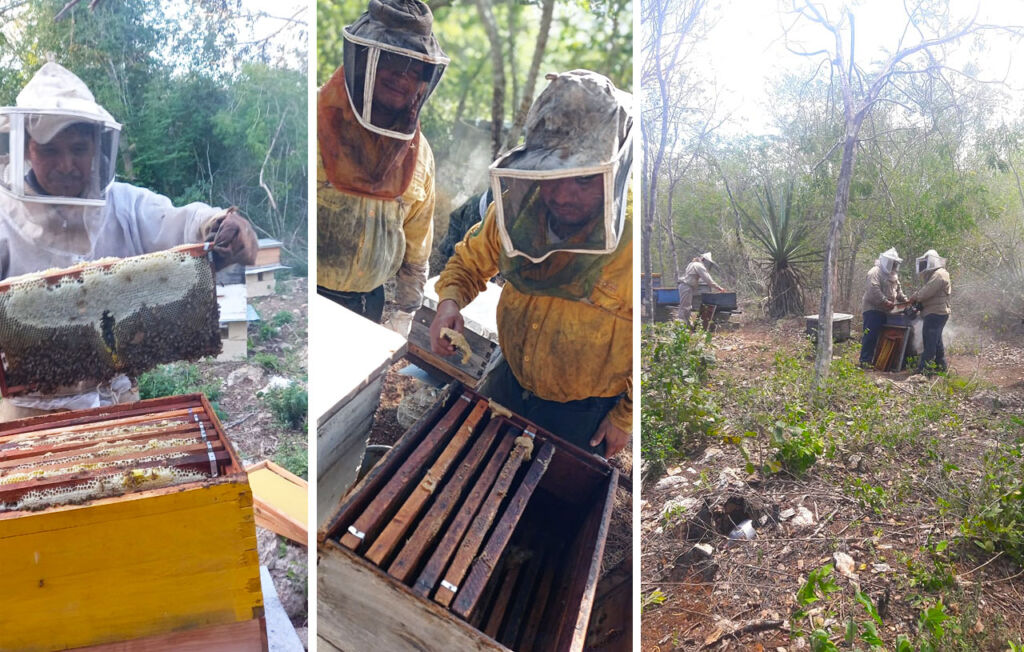
LM: Why should people buy honey from Two Bees and not opt for an on-the-shelf brand in a supermarket?
Two Bees: Quality and provenance are at the heart of everything we do. We know all of our beekeepers, and we are confident that the honey they produce and that we bring to the UK buyer is the very best from the regions we work with.
Two Bees is a range of characterful, pure kinds of honey from all corners of the globe; varied, 100% pure single-source, luscious and, above all, natural. No blends. No additives. No residues. It’s the best.
How to purchase Two Bees Honey
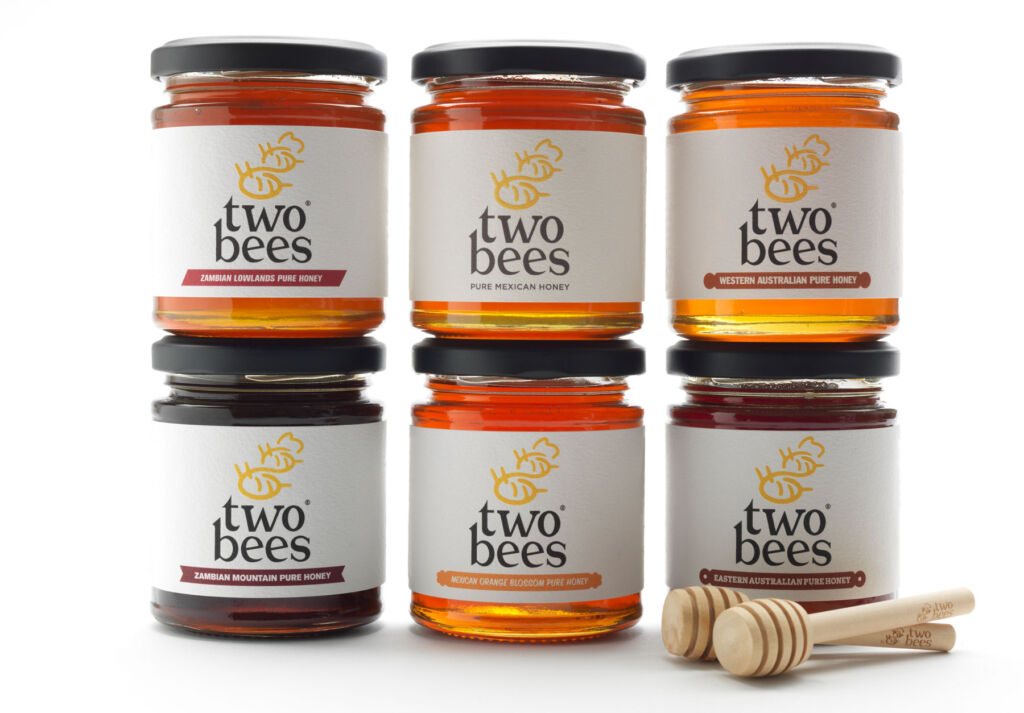
Their current range of honey comprises of:
- Mexican Yucatan Pure Honey
- Mexican Orange Blossom Pure Honey
- Eastern Australian Pure Honey
- Western Australian Pure Honey
- Zambian Mountain Pure Honey
- Zambian Lowlands Pure Honey
All of the above individual honey jars are priced at £5.99. The company also offers an assortment box containing six full-sized 250g jars covering the current range, and this is priced at £35.94 + P&P.
Click here to access the Two Bees online shop.
So the final question is, “Two Bees or not two bees?” Having personally tried Mark’s honey varieties, as far as my tastebuds are concerned, it’s Two Bees every time.
For more information on Two Bees, visit their website .
Read more exclusive interviews here.
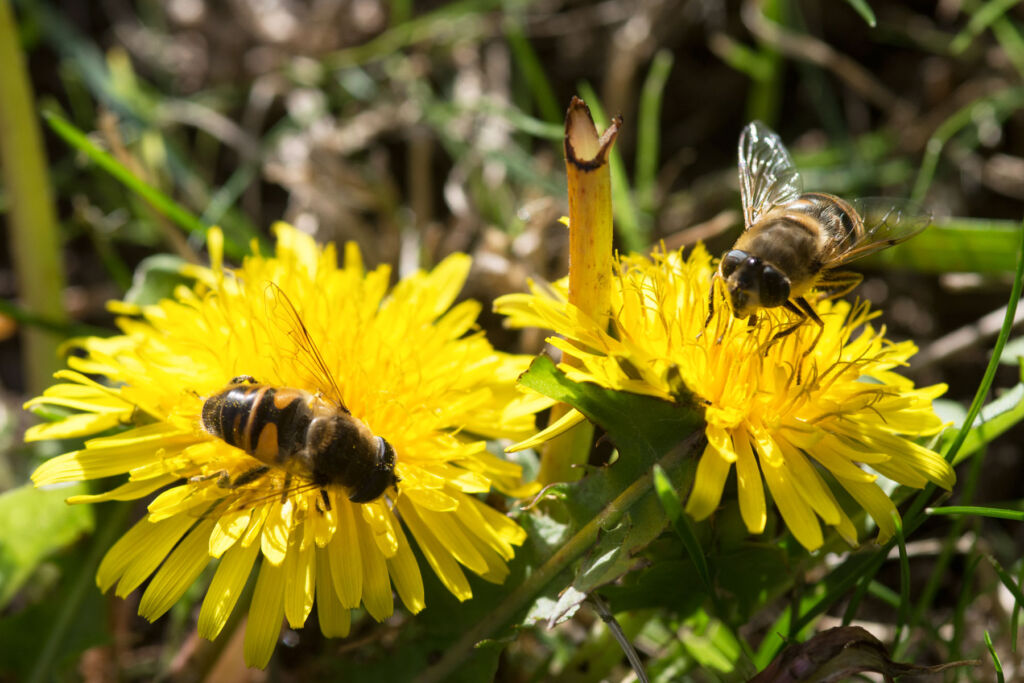
![]()

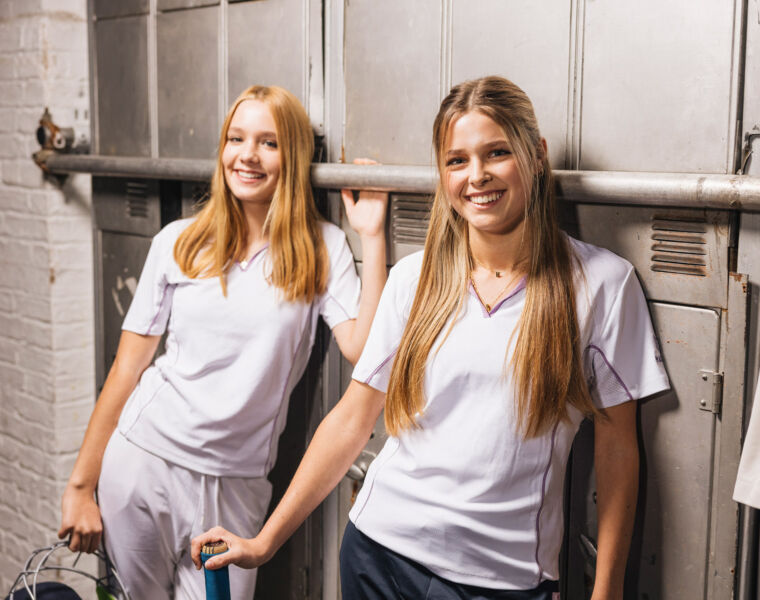
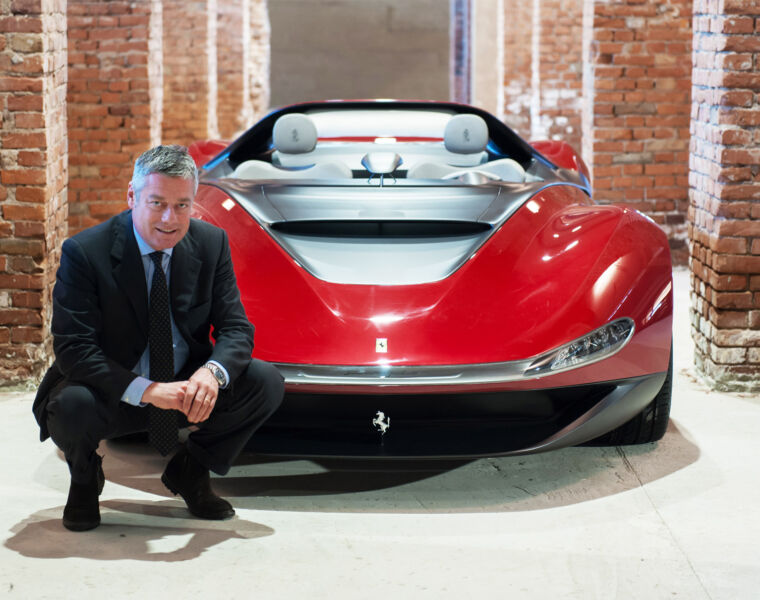
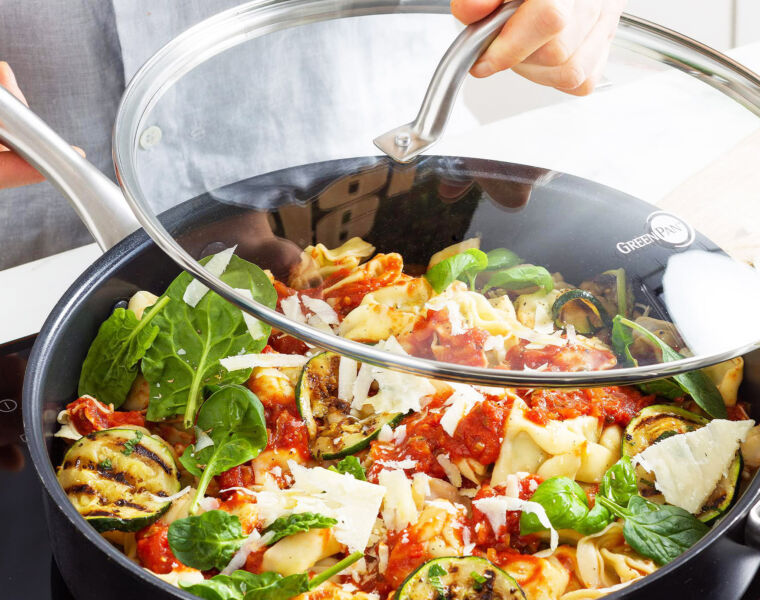
You must be logged in to post a comment.